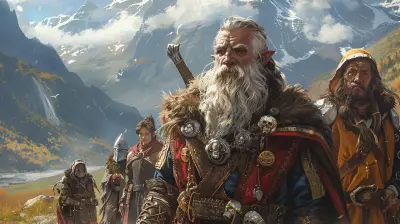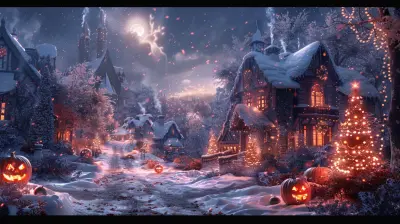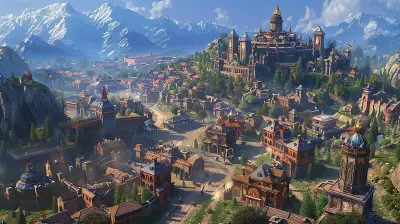RPGs That Rewrite the Fantasy Genre: Breaking Traditional Tropes
30 August 2025
Fantasy RPGs (Role-Playing Games) have long been a staple in the gaming world. They’re filled with wizards, swords, mythical creatures, and, of course, countless quests to save the world. But let’s be honest—how many times can we slay the same dragon, rescue the same princess, or uncover the same prophecy before it all feels a little... stale? That’s where things get interesting. Some RPGs shatter these conventions, break free from the mold, and flip the fantasy genre on its head. These are the games that don’t just play by the book—they rewrite it.
In this article, we’re diving into RPGs that redefine what fantasy can mean in gaming. Whether it’s by dismantling cliché storylines, introducing wildly original worlds, or reshaping gameplay mechanics, these games prove that there’s so much more to fantasy than elves, dwarves, and ancient artifacts. Let’s jump right in, shall we?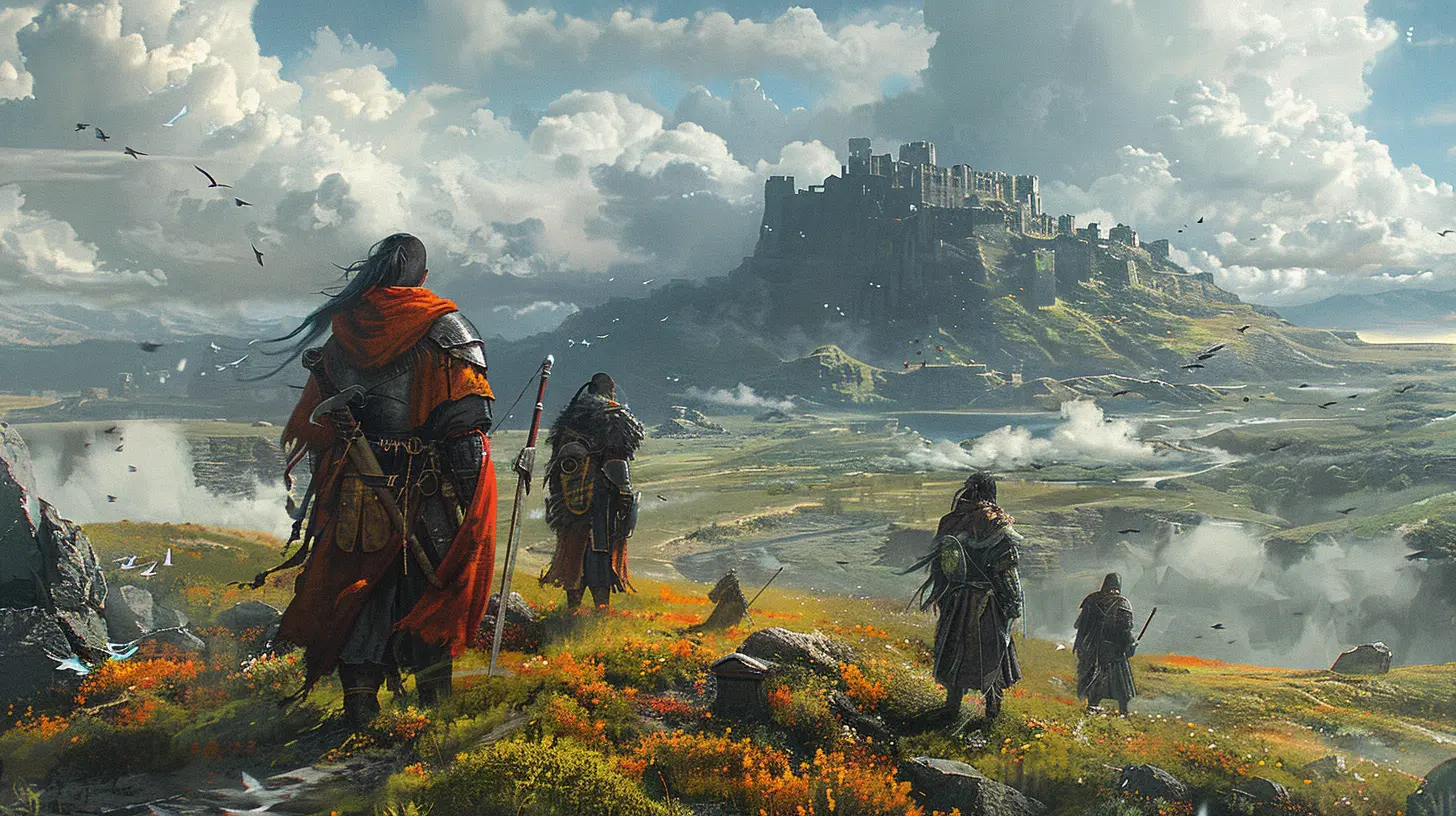
What Makes A Fantasy RPG Stand Out?
We’ve got to start with the basics—what even makes an RPG “fantasy”? Traditionally, it’s about high-stakes adventures in a magical world. Think enchanted forests, sprawling kingdoms, and heroes destined to fight evil forces.But here’s the thing: most “classic” fantasy RPGs heavily lean on Tolkien-esque tropes. You know, the whole orcs versus elves showdown, the hero’s journey, and magic systems that feel oh-so-familiar. Not that there’s anything wrong with that—it’s iconic for a reason. But games that dare to break these conventions? Oh, they’re like a breath of fresh, dragon-scorched air. They question the rules and ask, “What if fantasy wasn’t bound by tradition?”
The beauty of these groundbreaking RPGs is that they don’t always give you what you expect. They might make you question the roles of good and evil, blend unexpected themes into the setting, or even take the “magic” out of the equation entirely. Let’s explore some gems that have redefined the genre.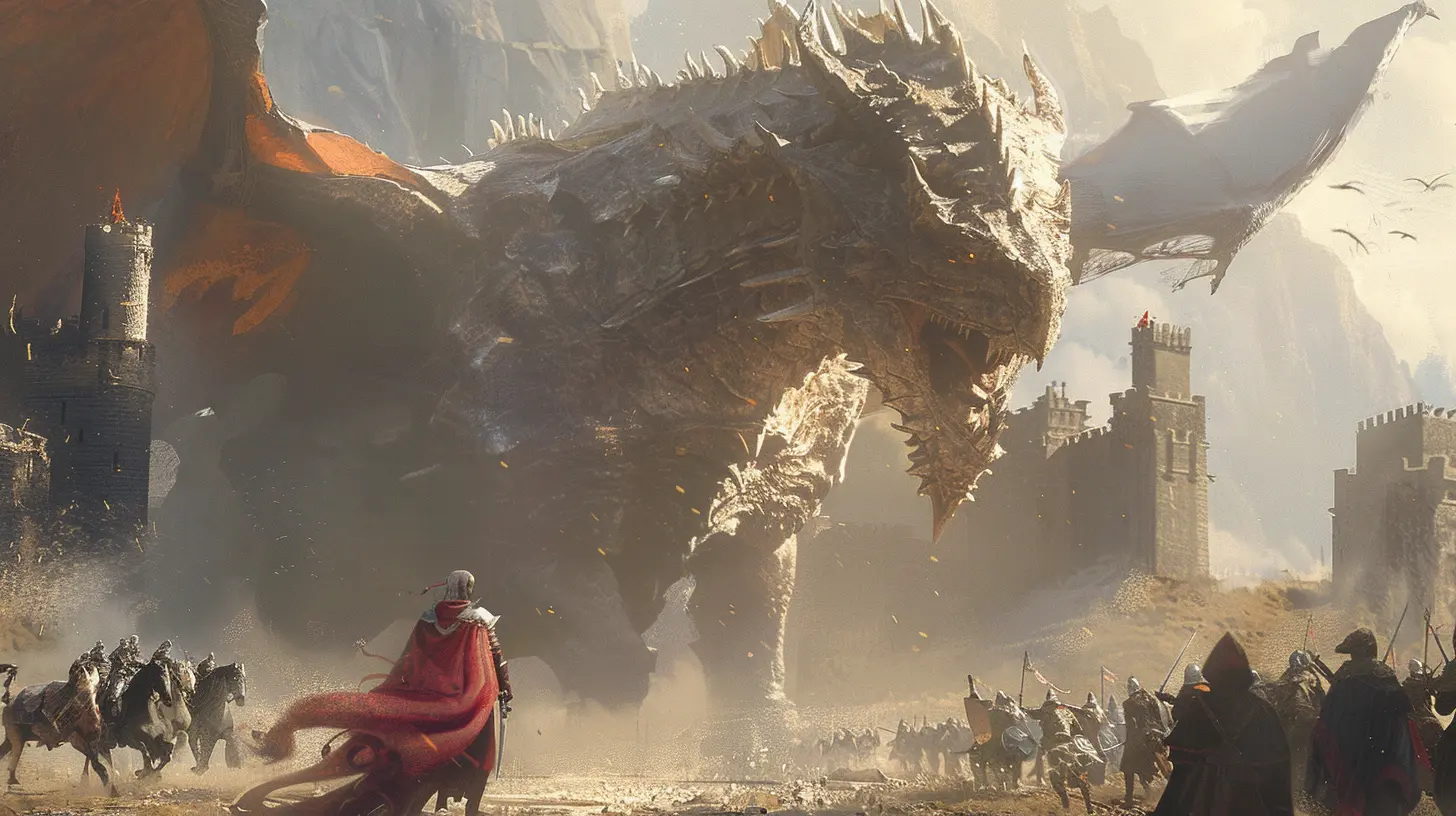
1. The Witcher 3: Wild Hunt – A Gritty, Moral Ambiguity Playground
If there’s one game that flipped the fantasy script and threw moral absolutism out of the window, it’s The Witcher 3: Wild Hunt. Forget about the noble “chosen one” trope—you play as Geralt of Rivia, a grizzled monster hunter who’s more about getting the job done than winning a popularity contest.Here’s what makes The Witcher 3 a standout: it bathes its fantasy world in shades of gray. The line between good and evil? Practically nonexistent. Every choice you make has consequences, and often, there’s no “right” answer. It challenges the notion that fantasy always needs to be a battle between good guys and bad guys. Add in its Eastern European folklore-inspired setting, complete with vile creatures and hauntingly beautiful landscapes, and you’ve got a game that feels refreshingly grounded yet deeply magical.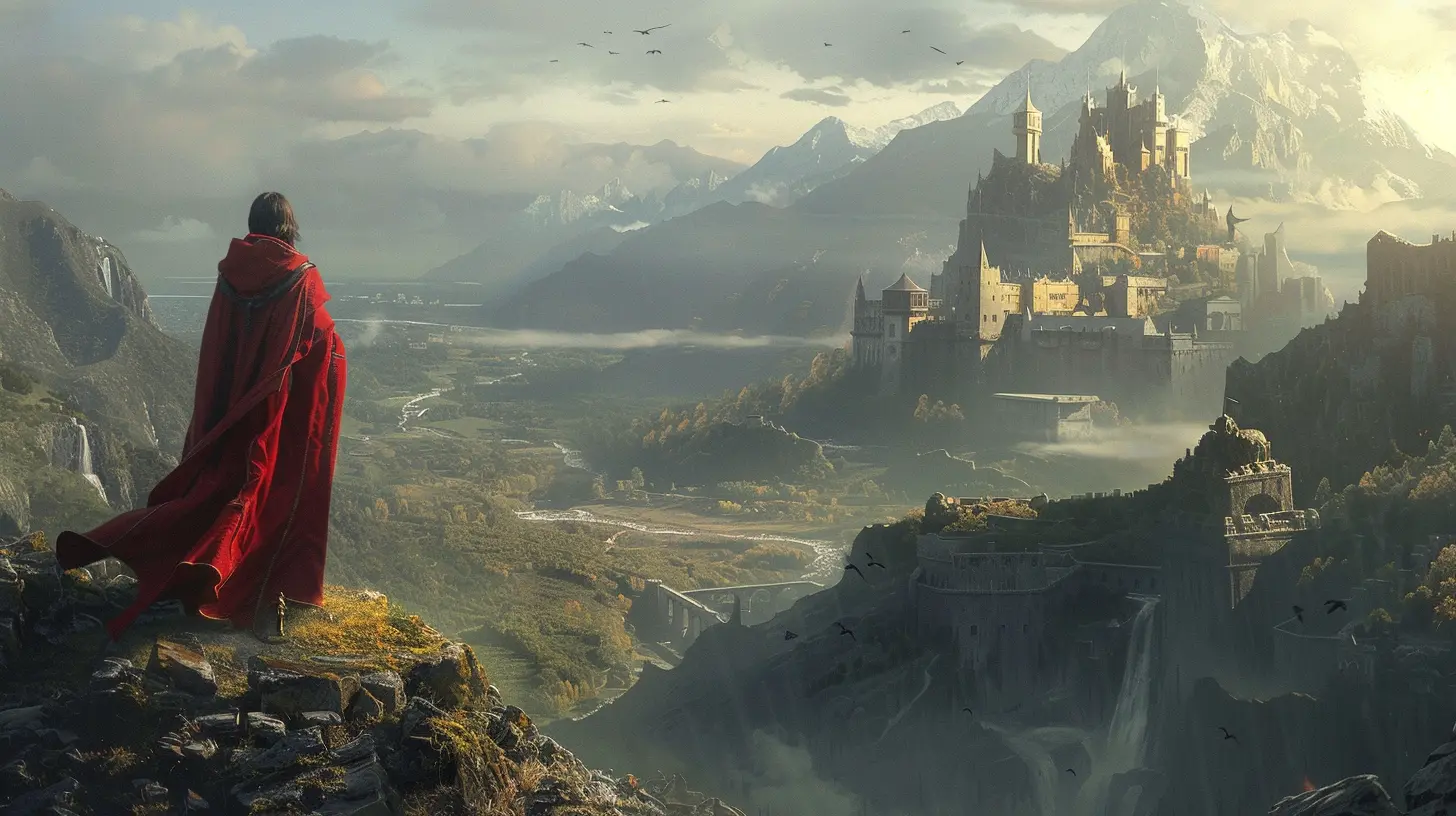
2. Disco Elysium – The Anti-Fantasy RPG
Wait a second—Disco Elysium an RPG in a fantasy article? Yep, hear me out. While it doesn’t fit the traditional mold of swords and sorcery, Disco Elysium takes the concept of a role-playing game and spins it into an entirely new beast. This game focuses on the fantasy of the mind rather than the external world.You play as a washed-up detective piecing his life and a murder investigation together, but the twist? It all happens in a surreal, hyper-political setting where your own mind is your biggest foe. Your inner thoughts are practically characters themselves, arguing and influencing your decisions. This approach unravels traditional RPG mechanics—there’s no combat, no leveling up in the typical sense, and no epic prophecy to fulfill. Yet it’s deeply engrossing, proving that fantasy doesn’t have to mean dragons and castles.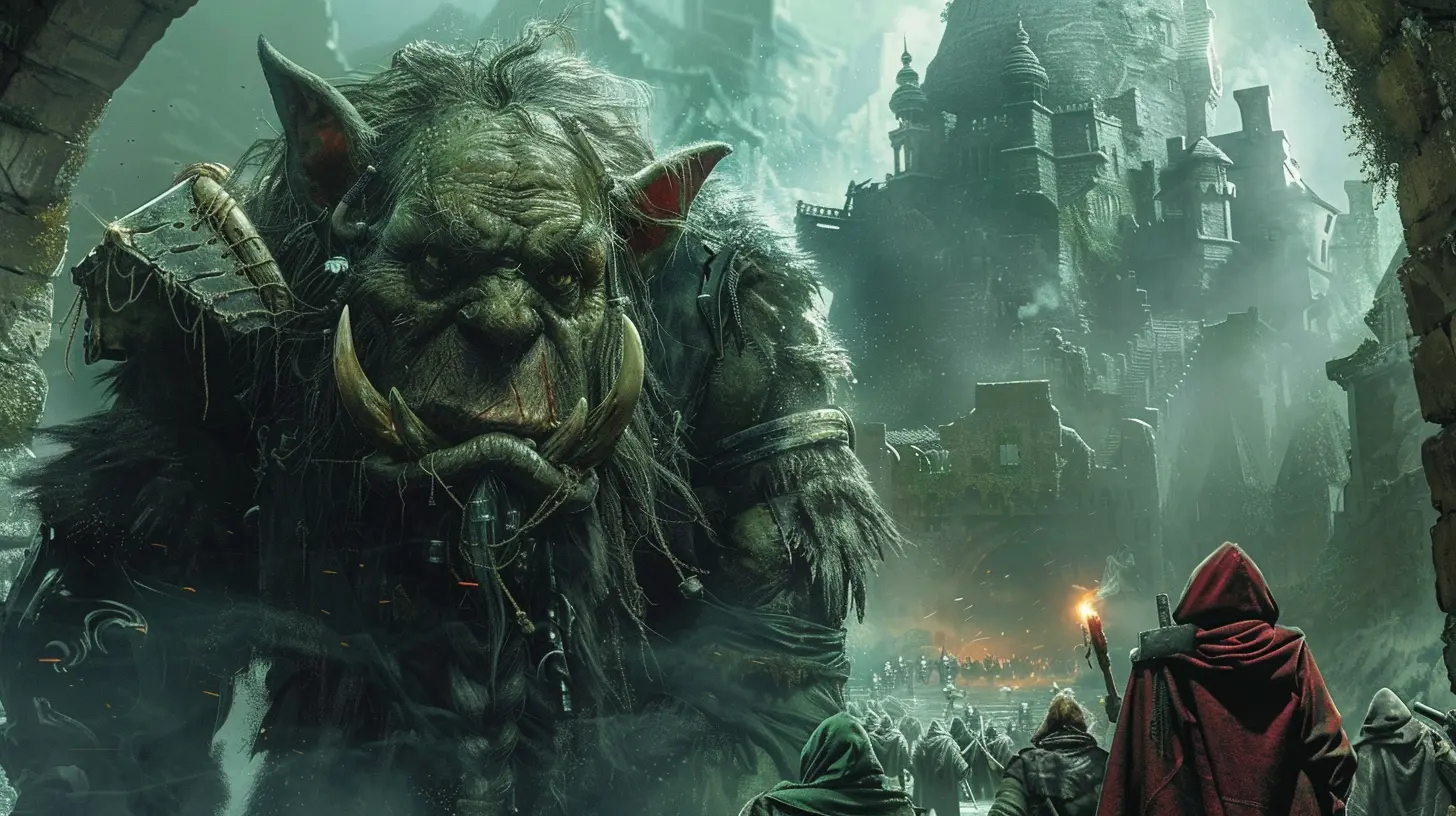
3. Undertale – Subverting Expectations With Heart
Let’s face it—most RPGs boil down to one core mechanic: combat. You see an enemy, you fight them, you level up, rinse and repeat. But then along came Undertale, a game that threw all of that out the window and said, “What if you didn’t have to fight?”In Undertale, you can complete the entire game without killing a single enemy. Instead of hacking and slashing, you’re encouraged to interact with enemies, understand their motivations, and find peaceful resolutions. It’s a brilliant deconstruction of traditional RPG tropes that forces you to re-examine the idea of what makes a hero.
The game’s quirky humor, self-aware narrative, and emotionally layered storytelling make it stand out as a true genre-bender. Plus, it’s living proof that even pixelated worlds can deliver huge emotional punches.
4. Dragon Age: Inquisition – Redefining Worldbuilding
While Dragon Age as a series already leans into more complex storytelling, Dragon Age: Inquisition takes the idea of worldbuilding to a whole new level. In most fantasy RPGs, the world feels alive but scripted. You’re constantly reminded that everything revolves around you, the protagonist. But in Inquisition, the world moves with or without your input.It’s one of the few RPGs where politics, religion, and cultures feel like they’ve existed long before you showed up and will persist long after you’re gone. Sure, you’re still saving the world (some things never change), but the game doesn’t overly glorify your role. It makes you feel like part of a larger, living tapestry of conflicts and histories rather than the sole savior destined by fate. That’s refreshing, isn’t it?
5. Dark Souls – The Beauty of Fragmented Storytelling
Who says a fantasy RPG needs to spoon-feed you its plot? Dark Souls takes a completely different approach, leaving its narrative hidden in fragmented item descriptions, cryptic dialogue, and environmental clues. It’s not for everyone, but for those willing to dig deep, the lore of Dark Souls is a masterpiece of understated storytelling.Instead of overloading you with exposition dumps, Dark Souls trusts players to piece together its dark, haunting world on their own. This minimalist storytelling style doesn’t just engage your curiosity—it actively makes you a participant in the game’s mystery. That’s a huge departure from the classic “hero’s journey” setup we’ve all grown accustomed to.
6. NieR: Automata – Philosophy Meets Fantasy
If you’ve ever played NieR: Automata, chances are it left you reeling. This game is a wild mashup of existential philosophy, breathtaking sci-fi aesthetics, and deeply emotional storytelling. While it’s often categorized as a sci-fi RPG, its themes of humanity, purpose, and morality redefine what fantasy in gaming could mean.What sets it apart? It doesn’t shy away from asking the hard questions. Who are we? Why do we fight? Is there even such a thing as “right” or “wrong”? The game’s layered narrative—complete with multiple endings—forces players to confront unsettling truths, much like the best fantasy stories do.
7. Hollow Knight – A Dark, Insectoid Fantasy
When we think fantasy, bugs don’t usually come to mind. But Hollow Knight pulls off something magical: it creates a sprawling, interconnected world that feels more alive than most traditional fantasy RPGs. Its silent, enigmatic protagonist and melancholic tone deliver a unique spin on the genre.Set in the fallen kingdom of Hallownest, every corner of this game is dripping with mystery and atmosphere. What really makes Hollow Knight stand out is its sense of isolation—it reminds you that fantasy doesn’t always have to be about grand battles or saving the world. Sometimes, it’s about exploring the unknown, one tiny step at a time.
Why We Need More RPGs That Break the Mold
Let’s be honest: the fantasy genre has so much untapped potential. While traditional RPGs will always have their place, these groundbreaking titles show us that there’s so much more to explore. By twisting tropes, creating unconventional worlds, and rethinking gameplay, these RPGs prove that fantasy is only limited by the imagination.And really, isn’t that what fantasy is all about? It’s not just about escaping to another world—it’s about redefining what’s possible in storytelling, gameplay, and the way we connect with games. Whether it’s a gritty, moral-ambiguous monster hunter or a pacifist journey through a quirky underground world, these games remind us that the best adventures are the ones that surprise us.
Final Thoughts
If you’re tired of traditional fantasy gaming, give these innovative RPGs a shot. They might just remind you why you fell in love with the genre in the first place—or even help you see it in a brand-new light. Who knows? Maybe the next great RPG on your playlist will be one that rewrites the rules entirely.all images in this post were generated using AI tools
Category:
Role Playing GamesAuthor:

Emery Larsen
Discussion
rate this article
2 comments
Meredith McFarlane
Who knew slaying dragons could come with a side of existential dread? These RPGs are flipping the fantasy script faster than a wizard at a magic show. Time to trade in my knight’s armor for a therapist's couch!
January 17, 2026 at 3:43 AM

Emery Larsen
Absolutely! RPGs are redefining fantasy by blending adventure with deeper themes, making us question everything—even our knightly pursuits!
Roxie McGonagle
Who knew fantasy could don a clown wig and ride a unicycle? These RPGs are flipping the script, juggling tropes like flaming torches. Watch out, traditional dragons—quirky adventurers are here to steal the show!
September 2, 2025 at 2:56 PM

Emery Larsen
Absolutely! It's exciting to see RPGs embracing whimsy and challenging conventions, bringing fresh perspectives to the fantasy genre.
